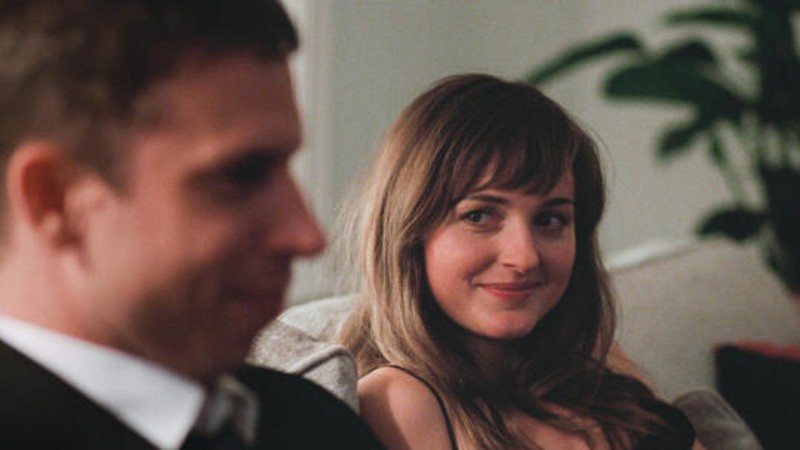Director – Joachim Trier – 2021 – Norway – Cert. 15 – 128m
*****
A young woman learns about both herself and life through two personal relationships – twice Oscar-nominated film is on MUBI from Friday, May 13th
Trying to reinvent herself, Julie (Renate Reinsve) spends her student days moving from medicine into psychology (believing she’s more interested in what’s inside than skin and bones) then photography as she decides she’s a visual person. Suddenly the world opens up to her, she’s meeting new people and before long she’s moved in with popular comic book artist Aksel (Anders Danielsen Lie from 22 July, Paul Greengrass, 2018; Personal Shopper, Oliver Assayas, 2016). He is 15 years older than her and wants to have kids (he’s the only one in his family who hasn’t yet done so). She isn’t currently ready for that.
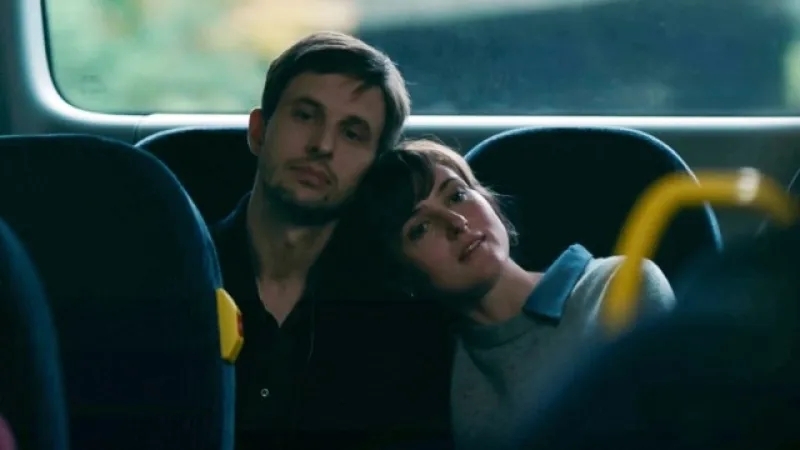
One night, after being pictured standing on an Oslo balcony in a repeat of the shot that opens the film, she leaves early from Aksel’s latest book launch and walking home gatecrashes a wedding party where she meets Elvind (Herbert Nodrum), their conversation gets very deep very quickly and they agree that neither of them will cheat on their respective partners, but then, as Julie says, where do you draw the line? Drinking from his bottle? Biting each other? Smelling each other’s armpits? (You smell nice,” he says.) They watch each other pee. Outside in the garden, he inhales her cigarette smoke. They walk along the street and part at a street corner, having exchanged only first names.
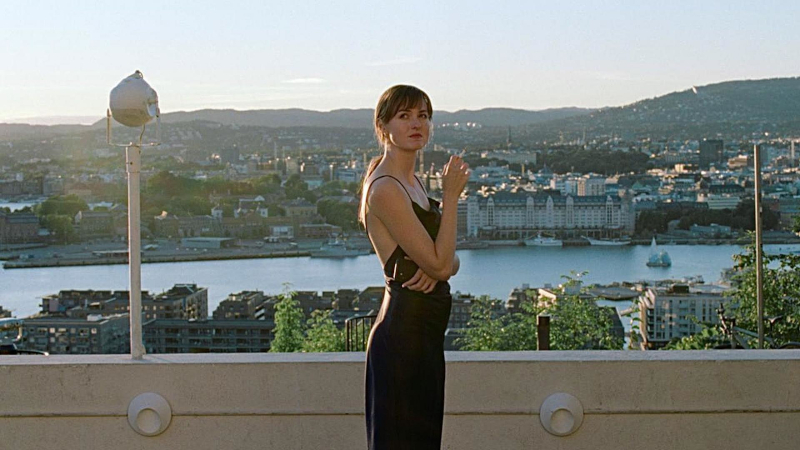
At home, while Aksel is working at his drawing board, she writes a short piece of erotic prose called Oral Sex in the Age of #MeToo. He is both taken aback by and impressed with her writing. It’s published online to great acclaim and sparks a widespread debate on social media. Julie’s life plods along – a birthday with her mother, a visit to her (separated) father – until one day she runs into Elvind again (with his wife!) at the bookshop where she works and he want to meet up, “just to talk”. Seeing him again feels more significant than anything in her life in the interim with Aksel.
Meanwhile, Aksel’s strip Bobcat is turned into a movie, a sanitised version of his adult comic.
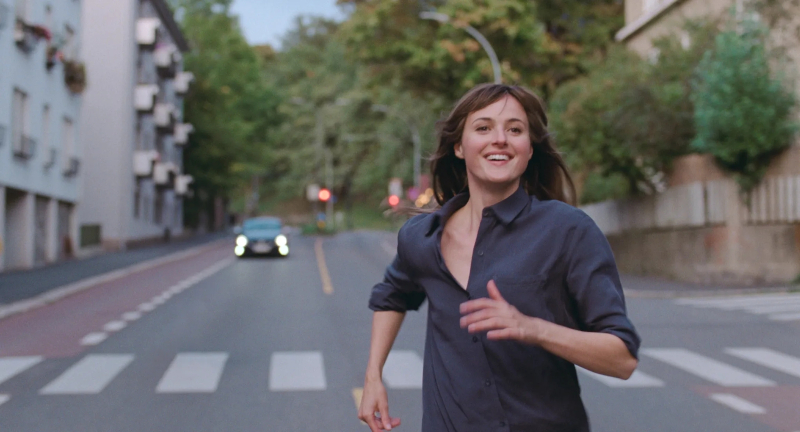
One day, Julie walks into the kitchen, flips a light switch suspending everyone else around her motionless in time and walks out of the house to find Elvind is the coffee shop where he works. They kiss, they go to the park, they walk late into the evening, they sit on a park bench talking, kissing, holding one another until the sun has come up. She goes back home, passing the same motionless people, flips the kitchen light switch back and tells the reanimated Aksel she’s leaving him. He tries to rationalise what she’s saying, pleads with her. “I love you but I don’t love you,” she says, summing for her what has become the impossibility of their relationship. But they can’t seem to separate without prolonging the agony, and he gives her one last blow job before agonisingly telling her that what they had was unique. Maybe we’ll get back together someday, she says, meaning it.
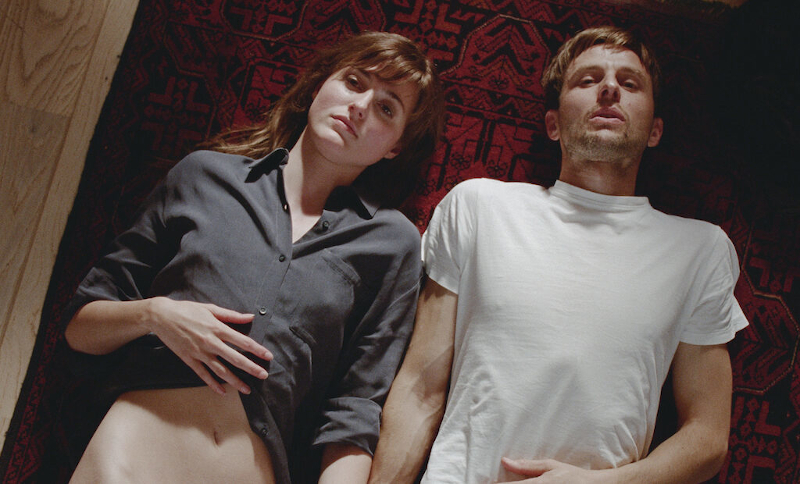
Meanwhile, Elvind’s wife Sunniva (Maria Grazia Di Meo) has reconnected with her Far Northern Sami heritage and embraced anti-climate change activism following an encounter with a reindeer on a walking camping holiday. So, a flashback, he already feels like he’s living with the sum total of Western guilt when he first meets the free-spirited Julie at the wedding party she crashed. When he later spots her in the bookstore, he felt like the eponymous worst person in the world but couldn’t resist. Athletic sex inevitably follows, although he still follows his ex’s Instagram because “she posts interesting stuff about yoga and the environment” which Julie interprets as “showing off her ass”.
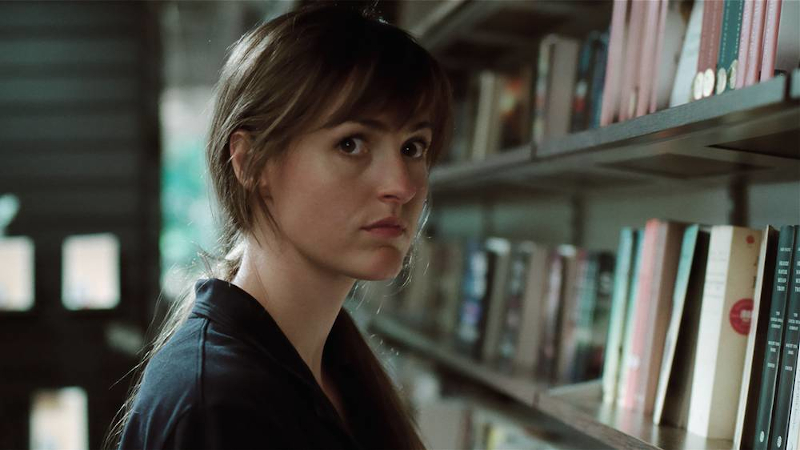
Eventually, Julie runs into Aksel’s brother Ole (Hans Olave Brenner) to learn Aksel is suffering from an incurable form of pancreatic cancer. Ole thought she knew, but she didn’t.
Meanwhile, she and Elvind are having rows and may not be together all that long. She conceals the positive result of a pregnancy test from him, mopes around the flat then goes to visit Aksel in hospital, surprising him as he’s wearing headphones and playing air drums along to a slice of cock rock in his room. He laments the passing of the world he knew, reminisces about going to record, comics and videos stores, “when culture was passed along through objects” that he spent his whole life collecting. “Knowledge and futile things that no-one cares about,” as he says. “I began to worship what I was… and now I have no future.”
Slowly, her visit turns into a meditation on life, death and leaving this life.
Yet, she recognises him as the only one she could ever talk to (a curious discounting of her life with Elvind) and wants him to tell her what she used to. What might that be, we wonder. That she’d be a good mother. He intuits that she’s pregnant. His one regret is failing to make her see how wonderful she was / is.
Going home, her coming in wakes Elvind and she tells him about the pregnancy, a strange conversation since they’ve previously decided they don’t want kids.
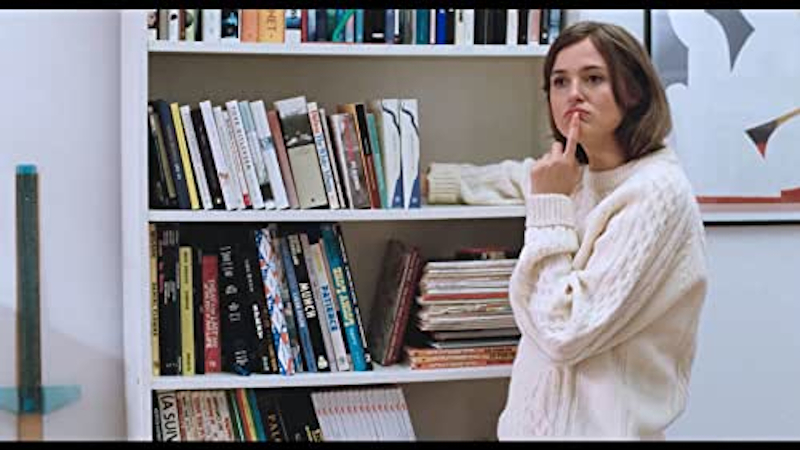
She goes on a reminiscence trip with Aksel, taking alog her camera for photographs (finally, after the subject got dumped from the plot in the prologue). She shoots the door of the place he and his family lived from age eight and his face as he sits on the stairs outside. He’s with her, looking out over the Oslo cityscape (recalling Julie smoking on the balcony in the film’s opening shot), sitting in a car. His regret at, basically, not wanting to die but wishing instead he could be living in his flat with her. A hankering for the past, not unlike the records, comics, books and videos he previously talked about spending his life collecting.
The phone call at work to tell her that Aksel’s condition has worsened and he may not make it through the night.
She sitting on brutalist Oslo steps at night smoking, again recalling that opening shot of the Oslo cityscape, now in a scene with a very different, bleak edge. She miserably walking the streets, then standing looking out over the water’s edge, struggling not to cry as the sun rises. Then, a cathartic, cleansing shower, a trickle of blood down her leg.
Epilogue. Julie as stills photographer on a movie set (with the crew wearing pandemic, surgical masks), shooting an actress who, unlike her, managed to have a child with Elvind (we see them both with the child outside as the actress leaves the set). Julie, however, settles down to selecting the best digital stills files from the shoot on her computer.
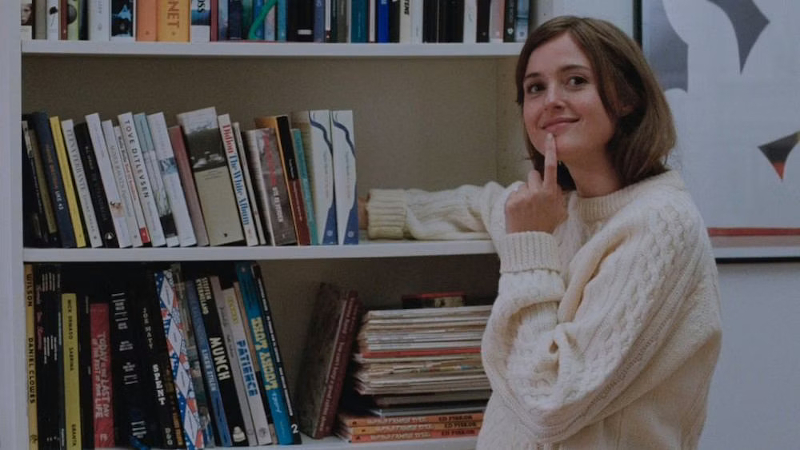
There are basic fears about our mortality and (if you believe there’s nothing after death) annihilation into utter nothingness here. As he says, “I’m sure I remember things about you that you’ve forgotten… When I’m gone, all that stuff about you will go with me.”
There’s a beautiful moment where, towards the end of the time stopped still episode, she passes a kissing couple frozen in time and moves the woman’s hand from the man’s upper arm to his bottom. (A similar time-stopping conceit underscores Taiwanese film My Missing Valentine, Chen Yu-Hsun, 2020).
After Elvind’s visiting friend Akil (Deniz Kaya) discovers his ancient stash of magic mushrooms, Julie has a trip during which, among other things, she pulls out a bloody tampon and waves it at her armchair-ensconced father and in a brief animation / live action composite sequence watches the emasculation of Aksel’s popular Bobcat character as she smears menstrual blood on her cheeks in a form of warpaint.
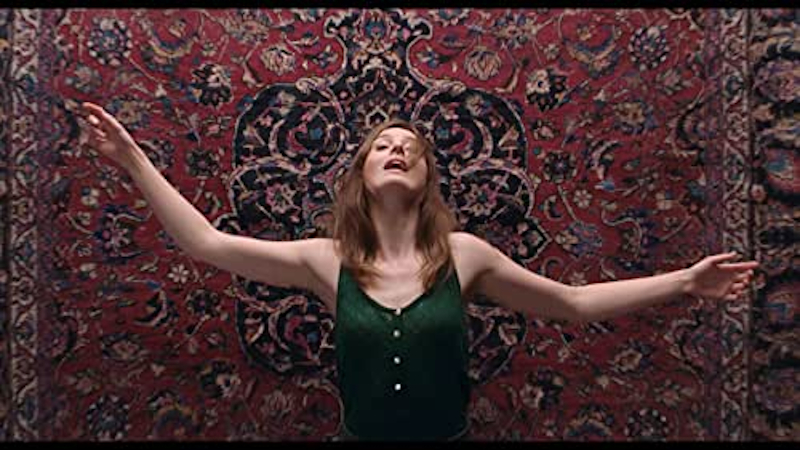
She’s exercising at a gym when she is stopped in her tracks by Aksel’s confrontation by woman pundit Marthe Refstad (Rebekka Jynge) on a talk show about the sexist nature of his early comics.
All in all, this is an extraordinary drama cum character study about a young woman trying to find herself. That sounds like it could be tedious beyond belief, but the script by Trier and regular co-writer Eskil Vogt (since graduated to director with The Innocents, 2021, UK release 20/05) keeps things moving along nicely while Trier extracts compelling performance from his three leads.
While I’d highly recommend the film, one facet of it is (to say the least) curious. It’s divided into 12 chapters preceded by a prologue and followed by an epilogue. The prologue set Julie up as a highly talented young woman about to embark on a career as a photographer, while the epilogue following two relationships shows her at work taking stills on a movie set. In the 12 chapters in between those, however, Julie is mostly relegated to a bookshop assistant, as if to say, women can’t make a relationship work and do a serious job at the same time, which this writer for one simply doesn’t believe. That caveat aside, though, this is great stuff.
The Worst Person In The World is on MUBI from Friday, May 13th.
Trailer:
The Worst Person In The World was out in cinemas in the UK on Friday, March 25th. It was nominated for Best International Feature Film and Best Original Screenplay at the Oscars.
